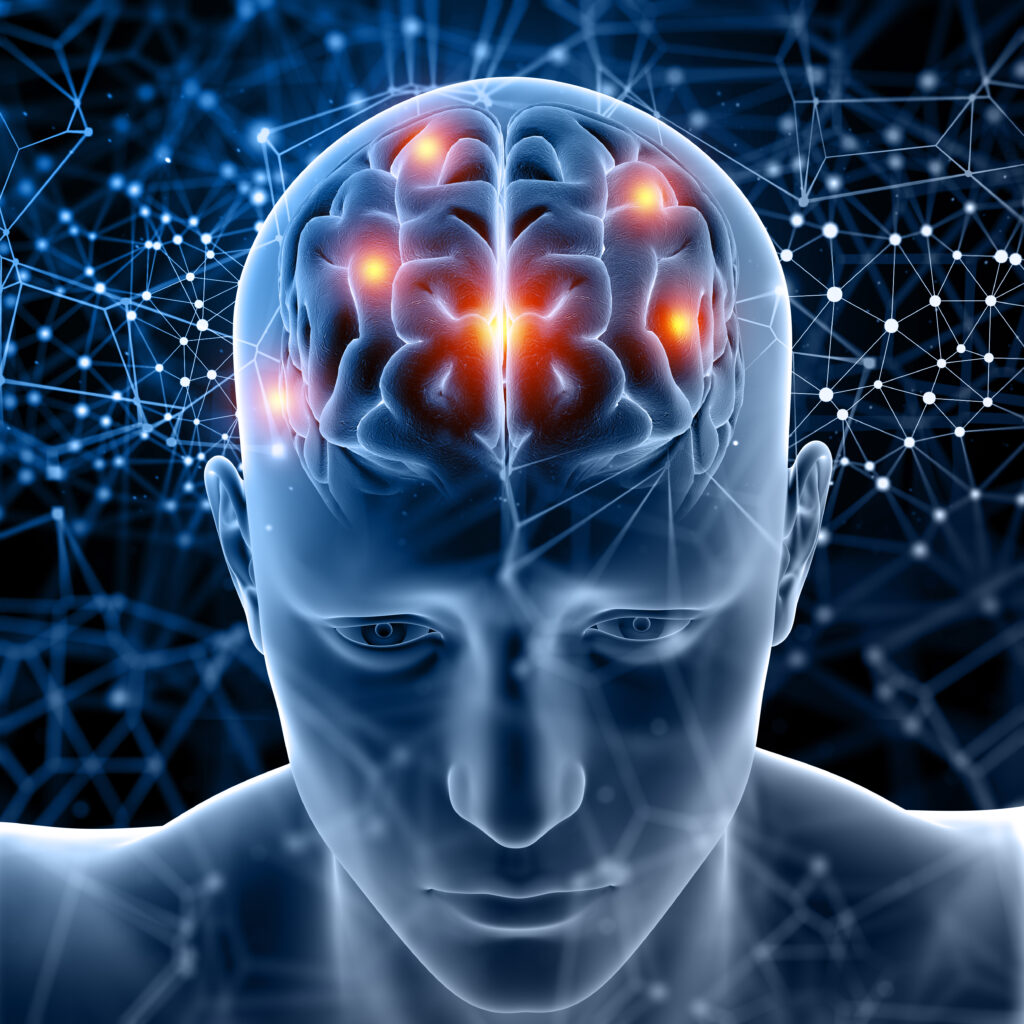
The intricate relationship between the mind and body has long fascinated researchers and health professionals alike. In recent years, the understanding of the mind-body connection has grown significantly, shedding light on how our thoughts, emotions, and mental state can profoundly influence our physical health and overall well-being. This article delves into the intriguing concept of the mind-body connection, exploring its mechanisms, impact on health, and practical ways to harness its potential for a more balanced and fulfilling life.
Introduction: Unraveling the Mind-Body Connection
The mind and body have long been perceived as separate entities, each functioning independently. However, modern research has illuminated the intricate interplay between these two domains, suggesting that they are deeply interconnected. The mind-body connection refers to the mutual influence that our mental and emotional states exert on our physical health and vice versa. This profound connection has far-reaching implications for our well-being, highlighting the importance of nurturing both aspects of ourselves.
Historical Context: Ancient Wisdom Meets Modern Science

Throughout history, various cultures and traditions have recognized the significance of the mind-body connection. Ancient healing practices such as Traditional Chinese Medicine and Ayurveda emphasized the need to maintain balance between mental and physical well-being. In more recent times, scientific advancements have enabled us to delve deeper into understanding the mechanisms behind this connection.
Neurological Foundations: How Thoughts Shape Brain Activity
The brain serves as the epicenter of the mind-body connection, acting as the bridge between our thoughts and bodily responses. Recent studies using neuroimaging techniques have shown that different emotions and mental states correspond to distinct patterns of brain activity. For instance, feelings of joy and gratitude activate areas associated with reward and positive emotions, contributing to an overall sense of well-being.

Mapping the Brain’s Response to Emotions
Research using functional magnetic resonance imaging (fMRI) has allowed scientists to map the brain’s response to various emotions. When we experience fear or stress, the amygdala, an almond-shaped structure in the brain, becomes highly active. This triggers the “fight or flight” response, leading to physiological changes such as increased heart rate and heightened alertness.
Neuroplasticity: Rewiring the Brain Through Mindfulness
Neuroplasticity, the brain’s remarkable ability to reorganize itself, plays a crucial role in the mind-body connection. Through mindfulness practices, such as meditation and deep breathing, individuals can actively engage in reshaping their neural pathways. Regular mindfulness practice has been shown to reduce the size of the amygdala, resulting in decreased reactivity to stressors.
Hormones and Emotions: The Chemistry Behind Our Feelings
The mind-body connection is also evident at the hormonal level, where emotions trigger the release of various chemicals that impact our physical state. For instance, the experience of stress prompts the adrenal glands to release cortisol, a hormone that prepares the body for a “fight or flight” response.

Stress Hormones and Their Impact on Physical Health
While cortisol serves an essential purpose in emergencies, chronic stress can lead to an overproduction of this hormone, contributing to a range of health issues. Prolonged cortisol exposure has been linked to suppressed immune function, increased inflammation, and a higher risk of conditions such as cardiovascular disease.
The Role of Positive Emotions in Boosting Immunity
On the flip side, experiencing positive emotions can have profound effects on our well-being. The brain releases neurotransmitters like dopamine and serotonin in response to feelings of happiness and contentment. These chemicals not only improve mood but also enhance immune system function, fostering better overall health.
Psychosomatic Disorders: When the Mind Affects the Body
Psychosomatic disorders exemplify the potent impact of the mind on physical health. These conditions arise when psychological factors, such as stress or emotional trauma, contribute to the development or exacerbation of physical symptoms.

Understanding the Link Between Stress and Illness
Stress, often stemming from emotional turmoil, can manifest as physical symptoms such as headaches, digestive issues, or muscle pain. The body’s stress response, intended to protect us in threatening situations, can become maladaptive when triggered chronically.
Breaking the Cycle: Mind-Body Interventions for Healing
Addressing psychosomatic disorders often involves addressing both the underlying emotional factors and the physical symptoms. Therapeutic approaches like cognitive-behavioral therapy (CBT) and mindfulness-based stress reduction (MBSR) have shown remarkable success in alleviating symptoms and promoting healing.
Mindfulness and Meditation: Cultivating Present-Moment Awareness
Mindfulness, a practice rooted in ancient traditions, has gained significant attention for its potential to enhance the mind-body connection. By cultivating present-moment awareness, individuals can reduce stress and achieve greater emotional equilibrium.
Reducing Stress and Enhancing Emotional Well-being
Mindfulness techniques, such as meditation and deep breathing, enable individuals to anchor their attention to the present moment. This practice promotes relaxation and diminishes the grip of negative thought patterns, ultimately leading to improved emotional well-being.
Meditation’s Surprising Physical Benefits
Beyond its impact on mental health, meditation has tangible effects on physical health. Regular meditation has been associated with reduced blood pressure, improved cardiovascular health, and enhanced immune function, underscoring the holistic nature of the mind-body connection.
Embracing Holistic Health: Integrative Approaches for Wellness
Integrative health approaches acknowledge the interconnectedness of mind, body, and spirit, offering a comprehensive approach to well-being. Practices such as yoga and acupuncture promote harmony and balance within the individual.
Yoga: Uniting the Mind and Body

Yoga, a centuries-old practice, combines physical postures, breathing exercises, and meditation to enhance the mind-body connection. Regular yoga practice has been associated with reduced stress, improved flexibility, and a greater sense of inner peace.
Acupuncture: Balancing Energy for Optimal Health
Originating from Traditional Chinese Medicine, acupuncture involves the insertion of thin needles into specific points on the body. This practice aims to restore the flow of energy, or “qi,” and has been shown to alleviate pain, reduce stress, and enhance overall well-being.
Unlocking Human Potential: The Power of Positive Thinking
The mind’s influence on the body extends to the realm of thoughts and beliefs. Positive thinking, characterized by an optimistic outlook, has the potential to shape our experiences and outcomes.
The Science of Optimism and Resilience
Research in the field of positive psychology has revealed the profound impact of optimism on mental and physical health. Optimistic individuals tend to have lower levels of stress, improved immune function, and a higher likelihood of adopting healthy behaviors.
Nurturing a Positive Mindset for a Healthier Life
Cultivating a positive mindset involves reframing negative thoughts and practicing self-compassion. Engaging in activities that bring joy and practicing gratitude are effective strategies for fostering positivity and enhancing the mind-body connection.
The Mind-Body Connection in Practice: Real-Life Stories
Numerous individuals have experienced transformative changes through the cultivation of their mind-body connection. These stories highlight the remarkable potential for healing and growth when we prioritize our mental and physical well-being.
Overcoming Chronic Pain Through Mindfulness
Chronic pain sufferers often find relief through mindfulness-based interventions. By redirecting their focus away from pain and developing a non-judgmental awareness of their sensations, individuals can experience a reduction in pain perception and an improved quality of life.
Transforming Lives with Integrative Health Care
Integrative health care combines conventional medicine with complementary practices to optimize patient outcomes. Patients facing various health challenges, from anxiety to chronic illness, have reported significant improvements in their well-being through integrative approaches.
Cultivating Your Mind-Body Connection: Practical Tips
Incorporating mind-body practices into daily life can enhance overall well-being and promote a harmonious balance between mental and physical health.
Prioritizing Self-Care and Stress Management
Self-care rituals, such as taking regular breaks, practicing relaxation techniques, and engaging in hobbies, are crucial for managing stress and fostering a strong mind-body connection. Adequate sleep, a balanced diet, and regular exercise also play vital roles in maintaining optimal well-being.
Daily Rituals to Enhance Mental and Physical Harmony
Simple daily practices can foster a deeper mind-body connection. Engaging in mindful eating, spending time in nature, and practicing gratitude are effective ways to stay attuned to both our mental and physical needs.
Conclusion: Embracing the Harmony of Mind and Body
The mind-body connection offers a profound lens through which to view our holistic well-being. By acknowledging and nurturing this connection, we empower ourselves to lead healthier, more fulfilling lives.
Frequently Asked Questions (FAQs)
Q1: What is the mind-body connection? A: The mind-body connection refers to the interdependent relationship between our mental and physical states, where thoughts, emotions, and behaviors influence bodily processes and vice versa.
Q2: How does stress impact the mind-body connection? A: Chronic stress can disrupt the mind-body connection by triggering an overproduction of stress hormones, leading to a range of physical and emotional health issues.
Q3: What are some practical ways to enhance the mind-body connection? A: Engaging in mindfulness practices, such as meditation and yoga, prioritizing self-care, and cultivating a positive mindset are effective strategies for strengthening the mind-body connection.
Q4: Can the mind-body connection influence physical healing? A: Yes, the mind-body connection can play a role in physical healing. Mind-body interventions, like mindfulness-based approaches, have been shown to alleviate symptoms and promote healing in psychosomatic disorders.
Q5: How can I start incorporating mind-body practices into my daily routine? A: Start with small steps, such as dedicating a few minutes each day to mindfulness meditation, practicing deep breathing exercises, and engaging in activities that bring you joy and relaxation.

Pingback: Fun Activities to Improve Mental Health (14 Ways)
Pingback: How to Attract Luck and Money in 2024
Pingback: Why am I so sensitive and cry easily?